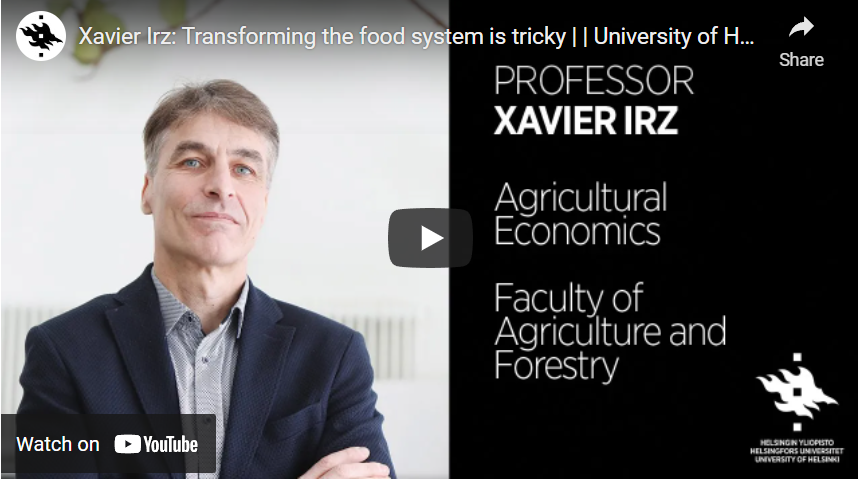Transforming the Food System Is Tricky – Carbon Credits Could Be One Solution
Consumers have a high demand for scientific evidence in sustainable diets, Xavier Irz says.
Consumers have a high demand for scientific evidence in sustainable diets, Xavier Irz says.
What are your research topics?
Currently my research applies the toolkit of economics to the analysis of how food systems could be made more sustainable. Globally, we know that the way we produce and consume foods is not compatible with planetary boundaries and generates considerable economic, social and health problems. However, transforming the system is not easy – it carries costs, requires difficult behavioural changes, may generate unintended effects, and may not be compatible with political realities.
Economics analyses private and public choices under scarcity, and as such, helps identify solutions to bring about socially optimal behaviours around healthy consumption and the sustainable production of food. Those solutions include traditional policies, such as taxes, subsidies or regulations, as well as market-based mechanisms, such as the creation of carbon credits for the capture of carbon in agricultural soils.
Where and how does the topic of your research have an impact?
Lately I have been working on the issue of sustainable diets – what they are, how to make consumers adopt them – and in my experience, consumers and citizens have a high demand for scientific evidence in that area in order to adjust their behaviours.
Much of my research is also applied and carried out within projects that involve professional organisations, NGOs and ministries. My research informs those stakeholders who have a real influence on the policy-making process in the agriculture and food area.
What is particularly inspiring in your field right now?
Many things – at a methodological level, the availability of big data and the development of new methods of analysis, such as machine learning and experimental methods – offer new prospects for evaluating agricultural and food policies and monitoring markets. That means we have better opportunities to establish which measures really work in making food systems more sustainable.
On the policy front, there is growing acceptance at the EU and national levels that agricultural and food issues are intricately linked to each other and can only be addressed by considering the system holistically.
Original Story Source: University of Helsinki


 Alerts Sign-up
Alerts Sign-up